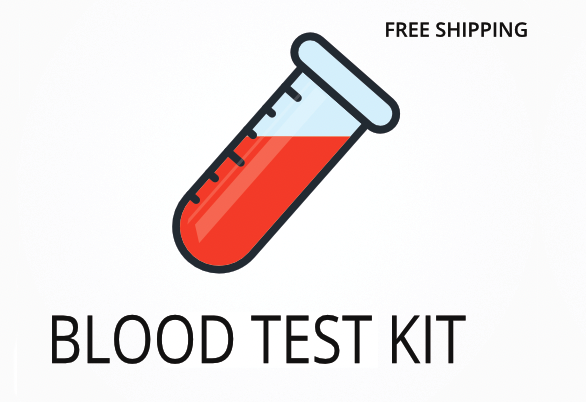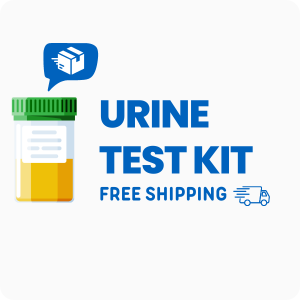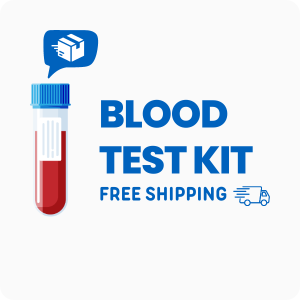Ordering the Alzheimer’s-Associated Immune Reactivity | Alzheimer’s LINX
Ordering the Alzheimer’s-Associated Immune Reactivity | Alzheimer’s LINX from Cyrex Labs helps check for immune system reactions that may affect the brain’s protective barrier. This test looks for antibodies that target brain proteins, growth factors, and other elements linked to cognitive changes. Interestingly, research shows that the blood-brain barrier can be affected by things like food sensitivities and certain chemicals, which may not be widely recognized as risk factors for cognitive decline.
When ordering this test, you gain access to specific information that can help guide next steps:
- Detects immune responses to brain proteins, growth factors, and environmental triggers.
- Identifies antibodies that may signal early changes in brain function.
- Assesses the impact of gut health and food sensitivities on brain health.
- Helps track immune activity related to memory, focus, and mental clarity.
- Supports your healthcare provider in creating a targeted plan for brain support.
Who Should Consider Immune Reactivity and Cognitive Decline Testing
People who notice changes in memory, focus, or mental sharpness may benefit from this test. For example, someone who has started to forget names or misplace items more often might want to check if their immune system is reacting to brain-related proteins.
Ordering this test may also be helpful in these situations:
- Someone with a family history of Alzheimer’s or dementia.
- People who have experienced repeated head injuries, such as from contact sports.
- Those with ongoing gut issues or food sensitivities.
- Anyone with unexplained mood changes, brain fog, or trouble concentrating.
- People with joint pain or autoimmune symptoms, since immune activity can sometimes affect the brain in unexpected ways.
This test can help reveal if the immune system is targeting parts of the brain or related proteins, which may be linked to memory loss or confusion. Delaying this test could mean missing early signs of immune activity that may be easier to address when found sooner.
To move forward, consider ordering the test to get a clearer picture of your immune system’s role in cognitive changes.
How to Prepare for Brain and Immune System Antibody Testing
Fasting is not required for this test, but always review the kit instructions for any special steps before your blood draw. Make sure to follow whatever guidance your doctor or healthcare practitioner gives you, as these instructions are tailored to your specific needs and can help ensure the process goes smoothly.
Labs Included When Ordering Your Alzheimer’s-Associated Immune Reactivity | Alzheimer’s LINX
| Test Name | Reference Range | Significance | Low and High Levels of Alzheimer’s-Associated Immune Reactivity | Alzheimer’s LINX |
|---|---|---|---|
| Brain Proteins | |||
| Tau Protein Antibodies | <20 | Tau protein antibodies may show if the immune system is reacting to proteins that help keep brain cells stable. This can be linked to memory and thinking changes. |
High levels mean the immune system may be attacking tau proteins, which can be linked to memory loss.
Low levels mean there is little or no immune response to tau proteins. |
| Amyloid-Beta Peptide Antibodies | <20 | This marker checks for immune reactions to amyloid-beta, a protein that can build up in the brain and is linked to cognitive decline. |
High levels mean the immune system is reacting to amyloid-beta, which may be linked to brain changes.
Low levels mean there is little or no immune response to amyloid-beta. |
| Rabaptin-5 + Presenilin Antibodies | <20 | These antibodies may show if the immune system is targeting proteins involved in brain cell communication and memory. |
High levels mean possible immune attack on proteins needed for brain cell function.
Low levels mean no significant immune response to these proteins. |
| Alpha-Synuclein Antibodies | <20 | Alpha-synuclein is a protein involved in nerve cell health. Antibodies may signal immune activity linked to neurological changes. |
High levels mean the immune system may be reacting to nerve cell proteins.
Low levels mean little or no immune response to alpha-synuclein. |
| Growth Factors | |||
| Beta Nerve Growth Factor Antibodies | <20 | This marker checks for immune reactions to proteins that help nerves grow and repair, which can affect brain function. |
High levels mean the immune system may be interfering with nerve growth.
Low levels mean no significant immune response to nerve growth factors. |
| Somatotrophins Antibodies | <20 | Somatotrophins are growth hormones important for brain and body health. Antibodies may show immune activity affecting these hormones. |
High levels mean possible immune attack on growth hormones.
Low levels mean little or no immune response to somatotrophins. |
| Brain-Derived Neurotrophic Factor Antibodies | <20 | This marker checks for immune reactions to a protein that supports brain cell survival and growth. |
High levels mean the immune system may be affecting brain cell support.
Low levels mean no significant immune response to this protein. |
| Neurotrophins Antibodies | <20 | Neurotrophins help with nerve growth and repair. Antibodies may signal immune activity that could impact nerve health. |
High levels mean possible immune attack on nerve growth proteins.
Low levels mean little or no immune response to neurotrophins. |
| Enteric Nerve, Enzymes and Neurological Peptides | |||
| Enteric Nerve + Vasoactive Intestinal Peptide Antibodies | <20 | This marker checks for immune reactions to proteins in the gut and brain, which can affect both digestion and mental clarity. |
High levels mean the immune system may be reacting to gut-brain proteins.
Low levels mean no significant immune response to these proteins. |
| Transglutaminases Antibodies | <20 | Transglutaminases are enzymes involved in tissue repair. Antibodies may signal immune activity that can affect the gut and brain. |
High levels mean possible immune attack on tissue repair enzymes.
Low levels mean little or no immune response to transglutaminases. |
| Pathogens | |||
| Oral Pathogens Antibodies | <20 | This marker checks for immune reactions to bacteria from the mouth that may affect the brain. |
High levels mean the immune system is reacting to oral bacteria.
Low levels mean no significant immune response to these pathogens. |
| Campylobacter jejuni CDT Antibodies | <20 | This marker checks for immune reactions to a gut bacteria toxin that can affect nerves. |
High levels mean possible immune response to gut bacteria toxins.
Low levels mean little or no immune response to this toxin. |
| Escherichia coli CDT + Salmonella CDT Antibodies | <20 | These markers check for immune reactions to toxins from common gut bacteria, which can impact nerve health. |
High levels mean the immune system is reacting to gut bacteria toxins.
Low levels mean no significant immune response to these toxins. |
| Enterococcus faecalis Antibodies | <20 | This marker checks for immune reactions to a bacteria that can affect both the gut and brain. |
High levels mean possible immune response to gut bacteria.
Low levels mean little or no immune response to this bacteria. |
| Herpes Type-1 Antibodies | <20 | This marker checks for immune reactions to the herpes virus, which can sometimes affect the brain. |
High levels mean the immune system is reacting to herpes virus proteins.
Low levels mean no significant immune response to herpes type-1. |
| Chemicals | |||
| Aluminum Antibodies | <20 | This marker checks for immune reactions to aluminum, a metal that can affect the brain if the immune system reacts to it. |
High levels mean the immune system is reacting to aluminum exposure.
Low levels mean no significant immune response to aluminum. |
| Ethyl + Methyl Mercury Antibodies | <20 | This marker checks for immune reactions to mercury, which can affect nerve and brain function. |
High levels mean possible immune response to mercury exposure.
Low levels mean little or no immune response to mercury. |
| Dinitrophenyl Antibodies | <20 | This marker checks for immune reactions to certain chemicals that may affect the brain and immune system. |
High levels mean the immune system is reacting to chemical exposure.
Low levels mean no significant immune response to dinitrophenyl. |
| Phthalates Antibodies | <20 | This marker checks for immune reactions to phthalates, chemicals found in plastics that may affect the brain. |
High levels mean possible immune response to phthalate exposure.
Low levels mean little or no immune response to phthalates. |
| Food Cross-Reactive to Amyloid Beta | |||
| Egg Yolk, Raw + Cooked Antibodies | <20 | This marker checks for immune reactions to egg proteins that may cross-react with brain proteins. |
High levels mean the immune system is reacting to egg proteins.
Low levels mean no significant immune response to egg proteins. |
| Scallops + Squid Caseins Antibodies | <20 | This marker checks for immune reactions to seafood proteins that may affect brain health. |
High levels mean possible immune response to seafood proteins.
Low levels mean little or no immune response to these proteins. |
| Tuna, Canned Antibodies | <20 | This marker checks for immune reactions to proteins in canned tuna that may cross-react with brain proteins. |
High levels mean the immune system is reacting to tuna proteins.
Low levels mean no significant immune response to tuna proteins. |
| Non-Gluten Wheat Proteins Antibodies | <20 | This marker checks for immune reactions to wheat proteins that are not gluten, which may affect brain health. |
High levels mean possible immune response to wheat proteins.
Low levels mean little or no immune response to these proteins. |
| Lentil Lectin + Pea Lectin Antibodies | <20 | This marker checks for immune reactions to plant proteins that may cross-react with brain proteins. |
High levels mean the immune system is reacting to plant lectins.
Low levels mean no significant immune response to these lectins. |
| Alpha-Gliadin + Gliadin Toxic Antibodies | <20 | This marker checks for immune reactions to gluten-related proteins that may affect the brain. |
High levels mean possible immune response to gluten proteins.
Low levels mean little or no immune response to these proteins. |
| Hazelnut Vicilin + Cashew Vicilin Antibodies | <20 | This marker checks for immune reactions to nut proteins that may cross-react with brain proteins. |
High levels mean the immune system is reacting to nut proteins.
Low levels mean no significant immune response to these proteins. |
| Blood-Brain Barrier and Neurofilaments | |||
| Blood-Brain Barrier Protein + Claudin-5 Antibodies | <20 | This marker checks for immune reactions to proteins that help keep the blood-brain barrier strong. |
High levels mean the immune system may be attacking the blood-brain barrier.
Low levels mean no significant immune response to these proteins. |
| Aquaporins Antibodies | <20 | This marker checks for immune reactions to water channel proteins in the brain, which help control fluid balance. |
High levels mean possible immune response to brain water channels.
Low levels mean little or no immune response to aquaporins. |
| Neurofilaments Antibodies | <20 | This marker checks for immune reactions to proteins that help keep nerve cells stable and healthy. |
High levels mean the immune system may be attacking nerve cell support proteins.
Low levels mean no significant immune response to neurofilaments. |
Reference ranges may be updated from time to time as new research and lab standards are released. Always review your results with your healthcare provider for the most current interpretation.
Alzheimer’s-Associated Immune Reactivity | Alzheimer’s LINX FAQ
Is there Alzheimer’s-Associated Immune Reactivity | Alzheimer’s LINX testing near me?
This test is provided as a kit that can be collected at a local draw site, making it easier for people experiencing memory or focus changes to access testing without traveling far. You can check the draw location list to find a convenient site for your sample collection.
How do I interpret the test results?
While your treating physician should review your results, we also offer a one-on-one test results review with our clinical team to help you understand what your results mean and what steps to take next.
What is the cost of the test?
The price for this test includes standard shipping to you and return shipping to the lab, though draw fees may apply at your local collection site. Ordering this test can help you and your provider find out if immune activity is affecting your memory or focus, which may help you get answers and support sooner.
How often should I retest?
Retesting is usually recommended every 6 to 12 months, especially if you or your provider are tracking changes in immune activity or response to treatment. Regular testing can help monitor progress and adjust your care plan as needed.
How accurate is the test?
This test uses ELISA (enzyme-linked immunosorbent assay) technology, which is known for its high sensitivity (97%) and specificity (98%) in detecting antibodies. TrueHealthLabs.com partners with CLIA-certified and CAP-certified laboratories to uphold rigorous testing standards for dependable results.
Important Notes
- This test is not intended to diagnose Alzheimer’s disease or any other neurological disorders.
- Detailed clinical explanation from Cyrex Labs.
- It is recommended to be clear of immunosuppressants and/or corticosteroids for at least 60 days prior to taking this test. Please consult with your prescribing healthcare provider.
- NOT AVAILABLE IN NEW YORK. SPECIMEN DRAWS CAN BE COMPLETED IN NEIGHBORING STATES.
- We are now accepting international orders. Sample must be received within 7 days. Additional return shipping fees may apply.
- READ: IMPORTANT Cyrex FAQs
- Due to circumstances beyond our control, pediatric blood draws are not included under Cyrex’s contracted phlebotomy. All patients 15 years of age and younger are included in the pediatric group. Pediatric blood draws must be scheduled by the parents at a laboratory of their choosing, and must be paid for by the parent at the time of service.
Medical Review Board
Reviewed by Jeff Donohue M.D. from Body Logic and Brady Hurst DC, CCCN. Written by True Health Lab’s team of editorial health contributors.
Disclaimer: This information is for educational purposes only and not intended as medical advice. Consult your healthcare provider for personalized guidance.
Why Customers Trust True Health Labs - What People are saying
Also rated 4.6 out of 5 based on 3452 ShopperApproved reviews- See all TrueHealthLabs.com reviews.








